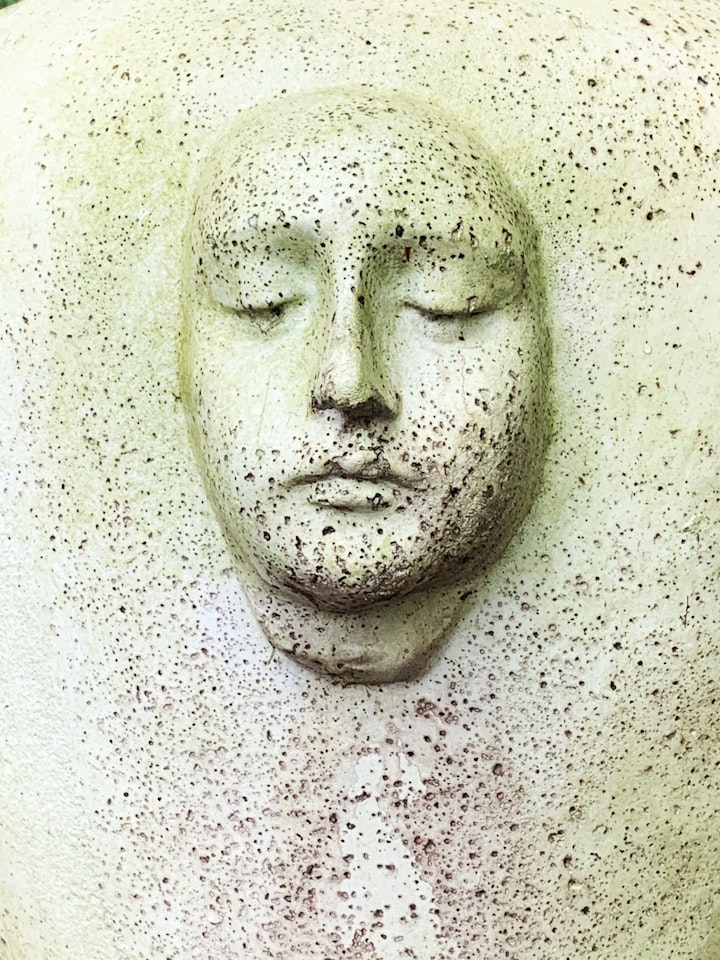Jerusalem syndrome: what is it, symptoms, causes and treatment
What is Jerusalem Syndrome? Let's see the characteristics of this strange mental alteration.

Jerusalem is a city in the Middle East that is located between the north shore of the Dead Sea and the Mediterranean Sea. This city is known for being considered a sacred city by the three great monotheistic religions: Christianity, Judaism and Islam.
Jerusalem syndrome has been considered a psychological disorder that can affect some tourists who visit the city of Jerusalem and also some of its inhabitants, being an alteration with symptoms very similar to that of psychosis. In addition, delusions and hallucinations could appear in this syndrome.
In this article we will see in greater detail what the Jerusalem syndrome consists of and also what the different types are that there may be.
What is Jerusalem syndrome?
Jerusalem syndrome has been considered by some specialists as a psychological disorder that can affect some of the tourists who visit the city of Jerusalem . This syndrome also affects some of the inhabitants of this city.
It should be noted that the Jerusalem syndrome is a psychological disorder with symptoms very similar to that of psychosis . In addition, delusions and hallucinations could appear in this syndrome.
It is common for people who suffer from this syndrome to identify with biblical characters and behave in imitation of them, the most common characters with whom they usually identify are the following: Jesus of Nazareth, Moses, Mary Magdalene, King David of the Old Testament or John the Baptist, among others. In addition, it is common for men to emulate male characters and women, female characters.

On the other hand, religious confession is also important , since Christians normally imitate characters from the New Testament, while Jews tend to imitate characters from the Old Testament. This identification is usually accompanied by prayers with the sick and public sermons, and people affected by the Jerusalem syndrome usually dress in tunics or sheets.
What could be the causes of Jerusalem syndrome?
It was Dr. Yair Bar-El , former director of the Kfar Shaul psychiatric hospital, located near Jerusalem, who first identified the Jerusalem syndrome. This psychiatrist came to examine approximately 500 tourists who had been declared temporarily insane and who were treated and admitted to the hospital where he worked between 1979 and 1993. Of all of them, 66% were Jews, 33% were Christians and the 1% had no definite religious affiliation.
In the Eim Karem hospital (“The Hadassah University Hospital-Ein Kerem”) in Jerusalem there is a psychiatry department that is specialized in the treatment of this syndrome, which is a breakdown of common sense due to an overload on a spiritual level when being in a site full of history, mythology, ideology and religion concentrated in the city of Jerusalem, as well as its consequences (crusades, massacres, exoduses, wars, miracles, martyrdoms, art, culture, etc.).
According to specialists in the field, the Jerusalem syndrome could be similar to the "Florence syndrome" or the "Stendhal syndrome" that was detected by Italian psychiatrists when they were able to observe in some patients that they had gone to Florence for tourism reasons and behave in a strange and irrational way (thought disorders and even panic attacks may appear). In this case, it could be the art, history, and beauty of the city that is causing the syndrome.
Most common symptoms of Jerusalem syndrome
Dr. Yair Bar-El and his collaborators developed criteria that could be used by mental health professionals to identify possible cases of Jerusalem syndrome.
These patients could have suffered an acute psychotic episode and in order to develop the Jerusalem syndrome, they most often go through 7 stages :
- Onset of symptoms of anxiety, nervousness, tension and/or agitation.
- Suffer an irrepressible desire to wander the city alone.
- Prepare a toga as clothing (it is common for them to use sheets).
- Feel the need to sing Bible verses, religious hymns or psalms.
- Carry out a procession to sacred places within the city.
- Give a public sermon in one of the holy places in the city of Jerusalem.
After being hospitalized in the psychiatric unit and receiving treatment, these patients usually regain consciousness and remember in detail what has happened to them. I feel it is quite common for them to feel ashamed about it and avoid talking about it.
The different types of Jerusalem syndrome
Jerusalem syndrome, as we have seen, is commonly associated with this psychological disorder that has affected several tourists who have visited the city of Jerusalem, as well as some of its inhabitants. However, it should be noted that there are several types of this syndrome, so we will explain them below.
1. First type
The first type would be the most common, since it is the one that usually develops in more than 80% of cases. Here we would be talking about a Jerusalem syndrome formed in people who, prior to their visit to this city, had received a diagnosis of some psychotic disorder. Moreover, in type 1 of the Jerusalem syndrome, we could find delusions that would have motivated these people to travel to a land as deeply rooted in religion as Jerusalem in order to complete "their mission".
Furthermore, within this first group, we could make a subdivision into 4 subtypes:
- Subtype 1: when they identify with a biblical character or have the conviction that they are that character.
- Subtype 2: when they identify with a religious or even political idea.
- Subtype 3: when they attribute healing properties to the city of Jerusalem.
- Subtype 4: when they show their own mental problems as if they were family problems.
2. Second type
The second of the types of Jerusalem syndrome would be made up of those patients who show idiosyncratic ideas and also show other psychological problems such as some psychotic decompensation in their personality (eg, suffering from a personality disorder that causes emotional instability, a histrionic disorder or even obsessive-compulsive personality disorder). However, in this type of case the strange ideas and thoughts do not reach psychotic or delusional dimensions, rather obsessive ideas usually appear (eg, a tourist who is obsessed with finding the “true” religion.
3. Third type
Finally, those patients who had never previously received a diagnosis of a psychotic disorder or any other psychiatric disorder that could be related to the symptoms of Jerusalem syndrome. In these cases, they usually receive the diagnosis after having suffered an acute psychotic break when they arrive in the city, and the most common is that in this type of case neither auditory nor visual hallucinations appear .
Therefore, it could be said that this would be the "purest" way of developing Jerusalem syndrome, as there is no psychiatric history. In addition, these episodes can be characterized by the following: symptoms of anxiety, nervousness or tension, wandering alone in the city or in holy places, having a strong desire for purification or cleansing, a strong need to pray or attempts to preach in a holy place.
Treatment for Jerusalem syndrome
Jerusalem syndrome in cases of type 3, which is the least severe as there is no previous psychiatric history, usually recover within approximately 1 week, so we could be talking about a brief episode that is followed by a complete recovery. .
In addition, recovery usually occurs spontaneously , so the treatment could be aimed at caring for the patient during those days, ensuring that they are well, that the symptoms are receding, and providing psychological support.
In the event that the patient has people who could be in their care, such as relatives, and having managed to stabilize or control the symptoms, hospital admission may not be necessary and in that case, outpatient treatment would be chosen until they can be given the discharge.
Later, once it has returned to normal, the patient could consider visiting a local professional who could monitor their mental health status in the following months.
In the most severe cases, such as those of type 1, which have a psychiatric history, a longer hospital stay may be necessary and the most appropriate treatment would be similar to that received by people with any psychotic disorder, being quite frequent that opt for an interdisciplinary treatment that provides the patient with psychological support along with the prescription of psychotropic drugs that allow control of delusions and possible hallucinations, it being very important that this is valued and that a psychiatrist makes the pertinent decision.
In the case of the group of patients belonging to type 2, there is the option of opting for a treatment that is focused on the comorbid symptomatology in order to achieve stability and in this way could reduce the symptoms associated with the Jerusalem syndrome in a matter of days as in the case of type 1 patients. However, treatment varies so it would be important to carry out a thorough evaluation by professionals.






Comments
There are no comments for this story
Be the first to respond and start the conversation.